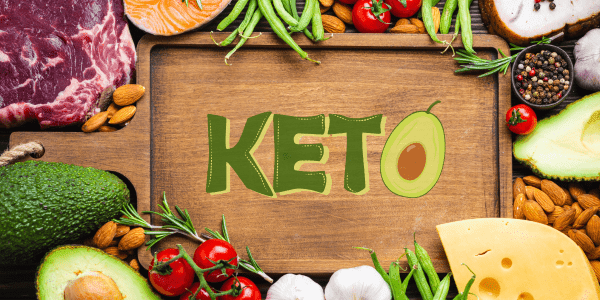If you're ready to embark on the Keto Diet journey, here's a step-by-step guide to help you get started:
 |
| How to Start the Keto Diet |
How do I start the Keto Diet?
1. Educate Yourself
Before starting any diet, it's essential to understand the principles and science behind it. Research and read reputable sources to familiarize yourself with the Keto Diet, including how it works, its benefits, and potential challenges.
2. Consult with a Healthcare Professional
If you have any underlying health conditions or concerns, it's advisable to consult with a healthcare professional or a registered dietitian before starting the Keto Diet. They can provide personalized advice and ensure it aligns with your specific needs.
3. Set Realistic Goals
Determine your weight loss or health goals and set realistic expectations. Remember, the Keto Diet is not a quick fix but a lifestyle change that requires commitment and patience. Aim for steady progress rather than rapid weight loss.
4. Clean Out Your Pantry
Rid your pantry and refrigerator of high-carb and processed foods. Get rid of sugary snacks, grains, sugary beverages, and anything that doesn't align with the Keto Diet. Stock up on keto-friendly foods to make meal planning easier.
5. Plan Your Meals
Meal planning is crucial on the Keto Diet. Plan your meals for the week, focusing on low-carb vegetables, high-quality proteins, and healthy fats. Create a shopping list and ensure you have all the necessary ingredients before starting.
6. Calculate Your Macros
Determine your macronutrient ratios based on your goals and individual needs. Use online calculators or consult with a registered dietitian to calculate the appropriate amounts of fat, protein, and carbohydrates you should consume daily.
7. Track Your Intake
To ensure you stay within your macronutrient targets, track your food intake using a food diary or a mobile app. This will help you monitor your carbohydrate, protein, and fat consumption, and make adjustments if needed.
8. Stay Hydrated
Hydration is important on the Keto Diet. Drink plenty of water throughout the day to stay hydrated and support overall health. Aim for at least 8 cups (64 ounces) of water per day or more if you're physically active.
9. Ease into Ketosis
Transitioning into ketosis can be challenging for some individuals. Consider gradually reducing your carbohydrate intake over a few days to minimize potential side effects like the keto flu. Start by reducing refined carbs, sugary foods, and starchy vegetables.
10. Monitor Your Progress
Keep track of your weight, measurements, and how you feel on the Keto Diet. Regularly assess your progress to stay motivated and make any necessary adjustments to your diet or exercise routine.
Remember, the Keto Diet is not just about what you eat but also about maintaining a healthy lifestyle. Incorporate regular physical activity, prioritize sleep, and manage stress levels to optimize your results.
With proper planning, dedication, and a positive mindset, you can successfully start your Keto Diet journey and enjoy the benefits of improved health and weight loss.

